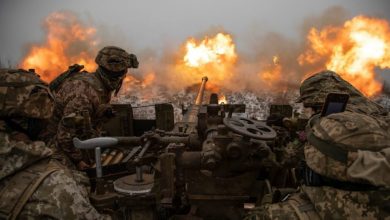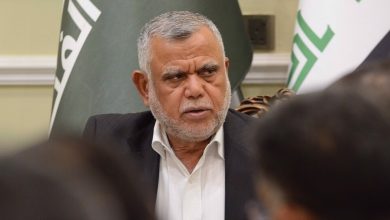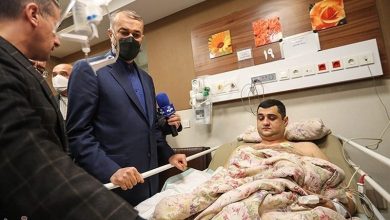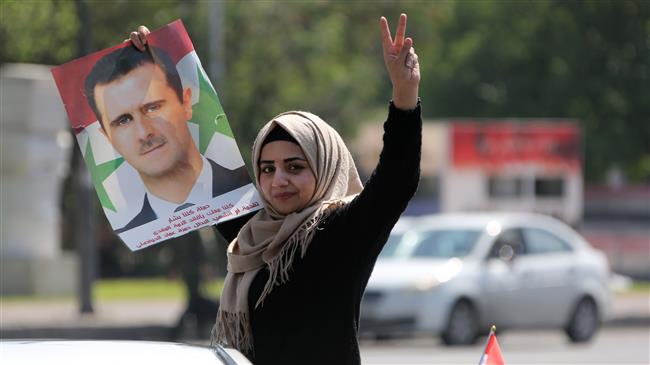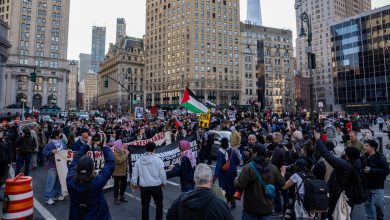US not only potential client for Iran’s heavy water: AEOI
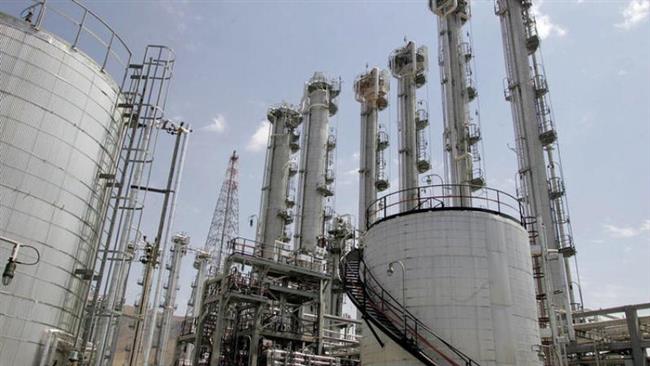
A senior Iranian official says the Islamic Republic is in talks with countries other than US for the sales of its heavy water, adding that good progress has been made in this regard.
“Negotiations are underway to sell [Iran’s] heavy water to other countries,” spokesman for the Atomic Energy Organization of Iran (AEOI) Behrouz Kamalvandi told reporters on Friday.
Spokesman for the Atomic Energy Organization of Iran Behrouz Kamalvandi
He added that Iran has asked the US to provide some assurances pertaining to the purchase of heavy water, saying such guarantees are being offered and the sale is being implemented.
“This issue is important because a country which sought to close Iran’s heavy water facilities, now accepts the responsibility to buy it. This issue is important in political, technical, legal and international terms and should not be overlooked,” the AEOI spokesperson said.
Last month, President Barack Obama’s administration completed an $8.6 million deal to buy 32 tons of heavy water from Iran. On May 25, 251 American lawmakers at the US House of Representatives voted for a bill that would prohibit such purchases next year. The measure is yet to be approved by the US Senate.
Kamalvandi further said some countries are reportedly doubtful about purchasing heavy water from Iran “but when the US fulfills its commitments to buy heavy water, other countries’ doubts will be removed.”
The AEOI head, Ali Akbar Salehi, said on May 31 that European countries have expressed their readiness to buy 20 tons of heavy water from Iran, adding, “We can produce 20 tons of heavy water per year.”
As required by the last July’s nuclear agreement, known as the Joint Comprehensive Plan of Action (JCPOA), reached between Iran and the P5+1 group of countries, Tehran is obliged to keep its heavy water stockpile below 130 tons and offer the surplus for sale on international markets, Salehi said, adding, “This does not mean that if there is no buyer, we will stop producing and stockpiling heavy water.”
Iranian Deputy Foreign Minister for Legal and International Affairs Abbas Araqchi also on May 27 downplayed the vote by the US House, saying, “According to the JCPOA, neither the US nor any other country is obligated to buy heavy water from Iran.”
After Iran and the five permanent members of the UN Security Council – the United States, France, Britain, China and Russia – plus Germany started implementing the JCPOA on January 16, all nuclear-related sanctions imposed on Iran by the European Union, the Security Council and the US were lifted. Iran, in return, has put some limitations on its nuclear activities.
The nuclear agreement was signed on July 14, 2015 following nearly a decade of on-and-off intensive talks.
In its second quarterly assessment since the implementation of the JCPOA, the International Atomic Energy Agency (IAEA) on May 27 verified Iran’s compliance with the landmark nuclear agreement and said Tehran “has not pursued the construction of the existing Arak heavy water research reactor” and has “not enriched uranium” above low levels.
